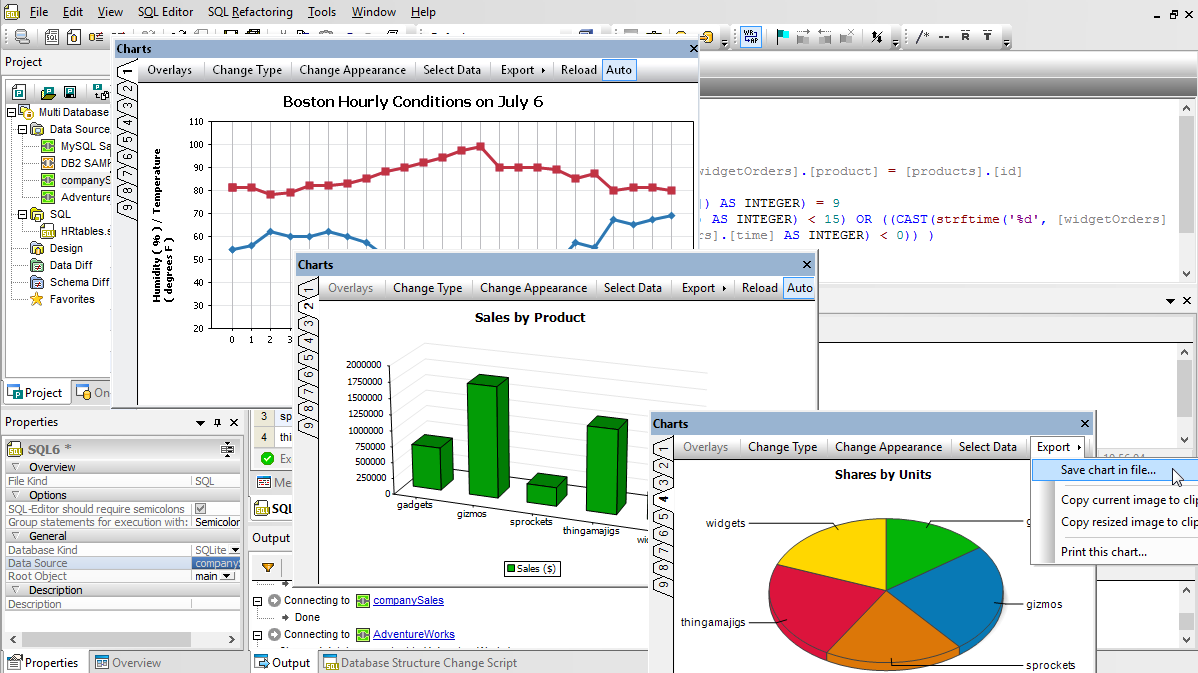Sql Write Binary Data To File


This is the solution I came up with: • Enable xp_cmdshell with EXEC sp_configure 'show advanced options', 1 GO RECONFIGURE GO EXEC sp_configure 'xp_cmdshell', 1 GO RECONFIGURE GO • If needed create a directory with xp_cmdshell to get the needed permissions. EXEC master.xp_cmdshell 'mkdir C: exportdir' • Use BCP with queryout EXEC master.xp_cmdshell 'BCP 'SELECT column_of_type_image FROM **your_db WHERE id = 1 ' queryout 'C: exportdir yourfile.pdf' -T -N' **your_db must be the fully qualified table name, i.e [Yourdb].[YourSchema].[YourTable]. I had the same problem with the extra 4 bytes being added to the beginning of all of my files as well. Instead of using -N option in my bcp command, I changed it to -C RAW. Activex Install For Windows Xp. When you do this, bcp will be prompted with the following questions: Enter the file storage type of field FileData [image]: Enter prefix-length of field FileData [4]: Enter length of field FileData [0]: Enter field terminator [none]: Do you want to save this format information in a file?
[Y/n] To fix this I created a text file (i.txt) on the root of my sql server which had the following lines within it to answer each of these: I 0 0 n Then, my EXEC bcp line became: EXEC master.xp_cmdshell 'BCP 'SELECT column_of_type_image FROM **your_db WHERE id = 1 ' queryout 'C: exportdir yourfile.pdf' -T -C RAW. I came around looking for a solution to export an IMAGE Column having stored different kind of file types (pdf, xls, doc, xml.) I want to export. The approach in the answer worked for pdf files only.
I'm developing a system to house all kinds of files in a SQL database. I need to be able to send these files via email, so I'm trying to create a temp file to attach to the email that is generated. I'm able to create an empty file, open it for writing but I'm getting error when i try to put the file. Killing Floor Map Pack V22 here. My Question is do I need to loop through the data byte by byte or can I just dump the whole thing.
Either way I'd appreciate the code for the PUT statement or the loop? This is the code that's generating the error intFileNumber = FreeFile Open str For Binary Access Write Lock Read Write As #intFileNumber 'Write binary data to the file Put #intFileNumber,, objRecordSet('binary_data' ) 'Close the file Close #intFileNumber Thanx in advance Joe. Use an ado mstream. ---- 'General Decs Dim picrs As ADODB.Recordset Dim mstream As ADODB.Stream 'In a sub somewhere On Error GoTo e_trap Screen.MousePointer = vbHourglass Set picrs = New ADODB.Recordset picrs.Open sqlLine, cn, adOpenKeyset, adLockOptimistic mstream.Write picrs!MYBINARYFIELD mstream.SaveToFile App.path & ' MYFILENAME.EXT', SaveCreateOverWrite ------- make sure to change MYBINARYFIELD to your field in your table, MYFILENAME.EXT to the filename you want to output to and also that 'sqlLine' is deinfed as your sql statement to pick a specific record (ex. 'select * from mytable where fileNo = 12'). Sorry, yes you need to open a connection to your server ------ 'Leave this in a module Public cn As New ADODB.Connection Public rs As ADODB.Recordset Public cmd As ADODB. Boot Camp Bluetooth Driver Windows Xp on this page. Command 'Put this in a connecting sub somewhere.i usually leave this connection open through the duration of my application ' Specify the OLE DB provider.
Cn.Provider = 'sqloledb' ' Set SQLOLEDB connection properties. Cn.Properties('Data Source').value = userServer cn.Properties('Initial Catalog').value = DATABASE_NAME ' Decision code for login authorization type: ' Windows NT or SQL Server authentication. Cn.Properties('User ID').value = userID cn.Properties('Password'). Value = userPW ' Open the database. On Error GoTo e_trap cn.Open ------- i'm not sure if you need the CMD defined the the global module to allow your program to work hope this helps -Shane.
There is one column of type image that I would like to export to binary files on. How to export an image column to files in SQL. Init, 'Write', NULL, @data.